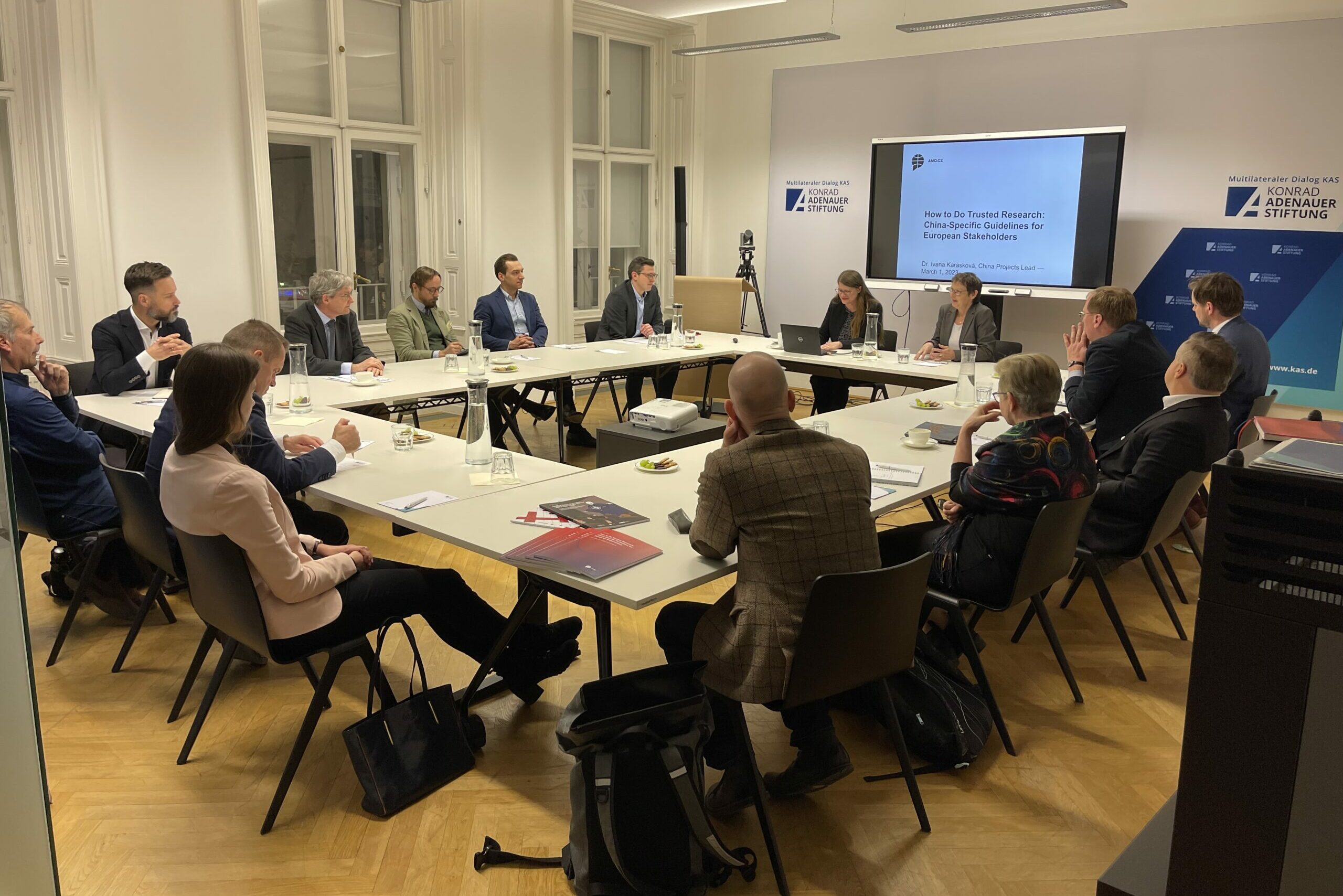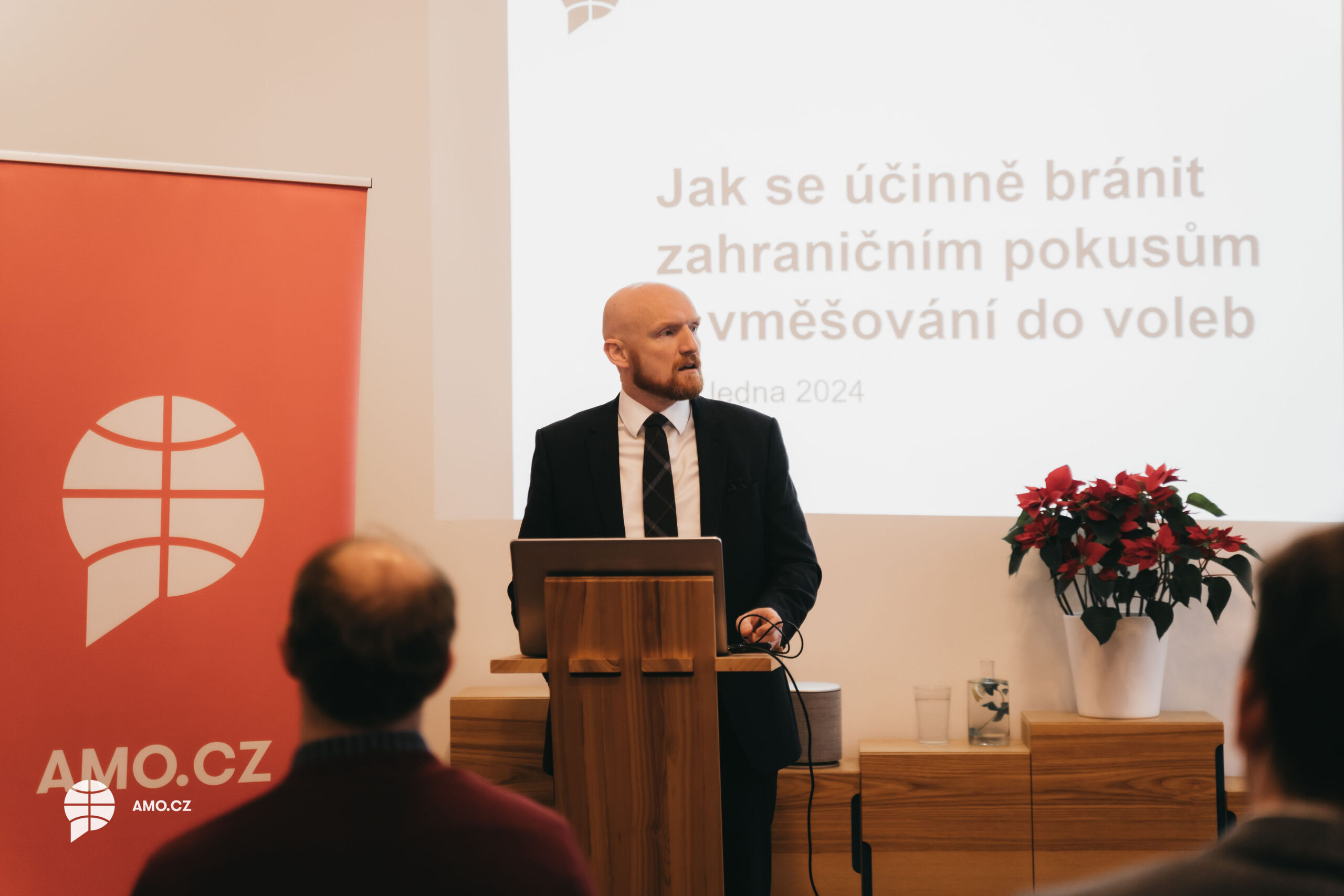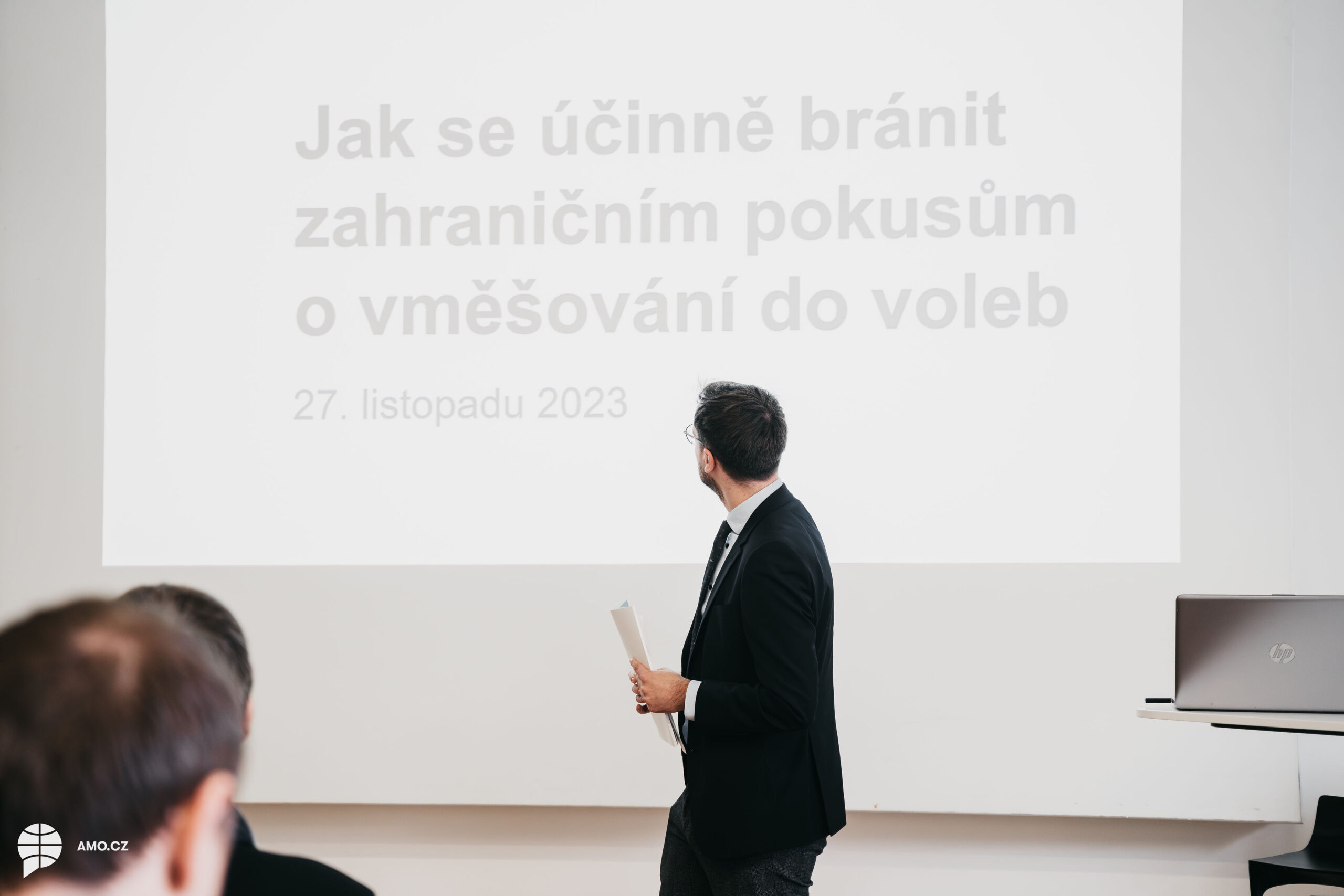MapInfluenCE leader Ivana Karásková presented the study ‘‘How to Do Trusted Research: China-Specific Guidelines for European Stakeholders‘ on scientific cooperation with China at a roundtable hosted by Konrad Adenauer Stiftung Multilateral Dialogue Vienna on March 1 in Vienna. The roundtable brought together stakeholders from academia and research centers to exchange with China experts, think tankers, and diplomats on the challenges surrounding academic exchange with China.
The study co-authored by Ivana Karásková, Veronika Blablová, and Filip Šebok looks at China’s approach to STI, its goals in Europe, and the state of knowledge protection in the EU. The authors examine the scope of cooperation in STEM areas with China in three EU member states (Austria, Czech Republic, and Slovakia), utilizing open-source data on
scientific cooperation. In her briefing, Ivana Karásková specifically addressed the situation in Austria. Central Europe is an attractive destination for China’s research funding. Research cooperation has been constantly increasing, especially in recent years. Between 2006 and 2021, 685 research outputs in key scientific areas declaring exclusive funding from Chinese sources were published in Austria. Research outputs declaring solely Chinese funding were found in all China’s STI priority areas. Most research cooperation was found in agriculture, new materials, and smart manufacturing and robotics. There are currently around 140 Chinese Ph.D. students at Austrian universities and research institutions. This number has been largely constant in recent years and is the highest out of the three observed countries.
The aim of the study is to map China’s STI priorities and create awareness of its goals in Europe. Based on the aforementioned findings, the authors have formulated China-specific, evidence-based guidelines for Austrian and European stakeholders. The scientific institutions should be motivated to develop and nurture an environment for trusted research as a key advantage and be assisted in identifying and safeguarding their “crown jewels”. Finally, state administrations should establish an independent point of contact that could provide advice and recommendations to all higher education institutions and research centers.


